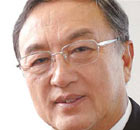Foreign and Military Affairs
West yet to embrace China on global governing: analyst
(Xinhua)
Updated: 2010-05-10 22:07
 |
Large Medium Small |
SHANGHAI - Despite China's fast economic growth, western countries are not prepared to change the mechanisms of global governance to accommodate the emerging nation, an analyst said at the Shanghai Expo on Monday.
James Kynge, editor of China Confidential, a Financial Times publication, said the trend of China's economic rise will most likely remain over the next ten years.
Kynge was speaking at a round-table discussion with the theme "World 2020: Opportunities and Challenges" which was organized by the European Union as part of its "EU In the World" program.
Kynge has lived 16 years in China and is the author of "China Shakes the World," a 2006 bestseller.
He said China's rise will be characterized by: technological upgrade; commercial competition with European and US companies; increased popularity of Chinese brands; and the migration of 300 million Chinese farmers to cities.
"In ten years, China will be economically, diplomatically and strategically more powerful than it is today," he said.
With China' s rise, however, it has become important to restructure the global governance system, to take account of China's increased power, he said.
Since the end of World War II, the world has been governed by multilateral organizations like the United Nations (UN), the International Energy Agency (IEA), the International Monetary Fund (IMF), and the World Trade Organizations (WTO) - organizations mostly initiated by the United Sates and with the mission of furthering the West, he noted.
In theory, Western countries are willing to make changes to these organizations to accommodate a rising China. But in practice, it is hard, he said - "People never want to vote to give power away," he said.
"Not only does the world have to absorb a huge and rapidly growing power into the power structure, it has to absorb a very different power," Kynge told Xinhua, stressing that China differs from the West in many ways, like political systems, wealth, and ways of thinking.
He said it is unfortunate "there is not much thinking on the issue" in the West.
"The governments have not decided a coherent policy. They are not prepared. Some of them even tend to deny the issue. If they fail, there is a risk global governance will be disfunctional," he warned.
Pat Cox, ex-president of the European Parliament, said China has actively participated in international economic and political organizations like the G20, which represents a change in global governance.
"The important first step has been taken. A new order is being formed, and China is being part of that," said Cox.







